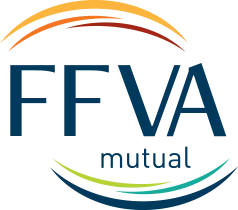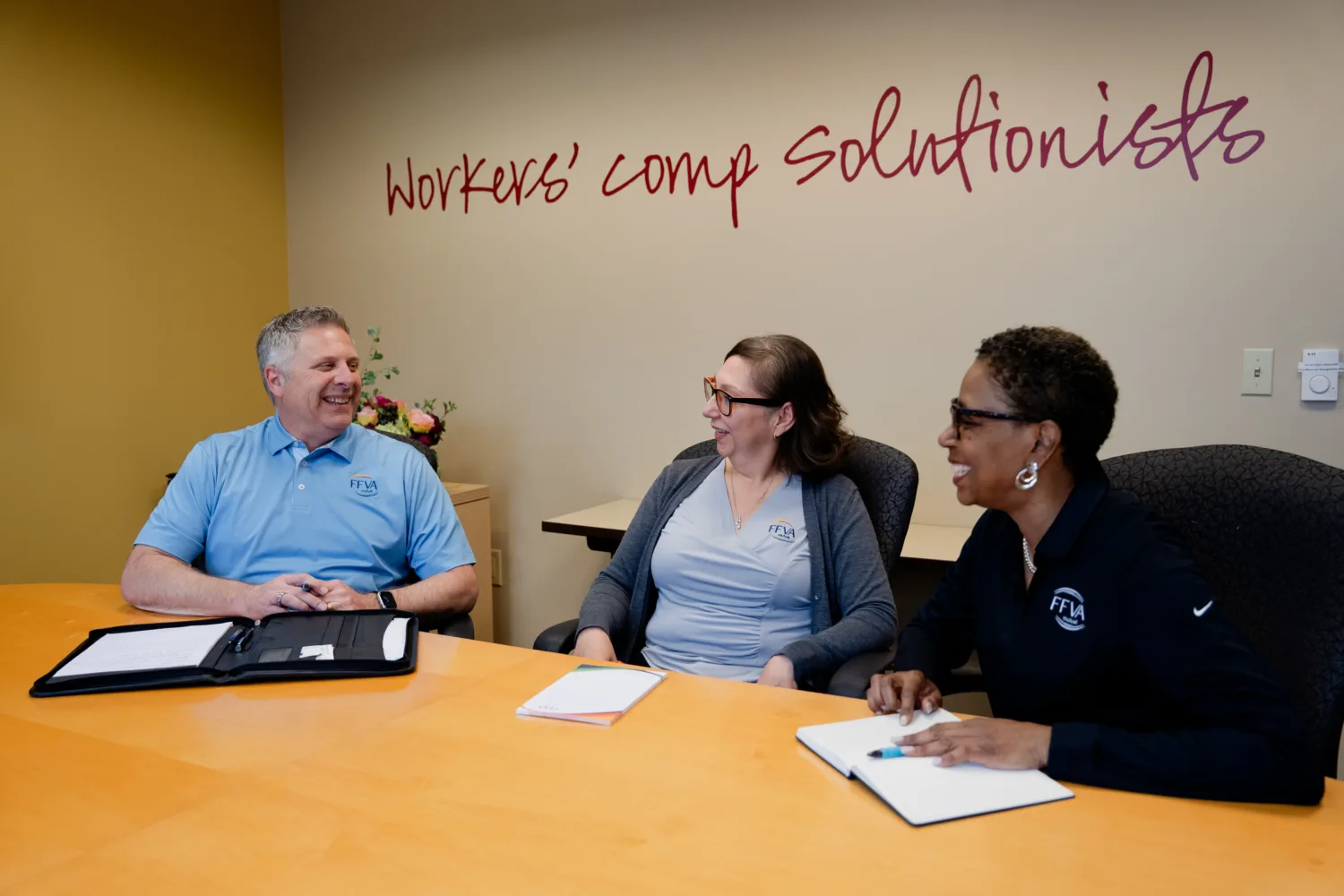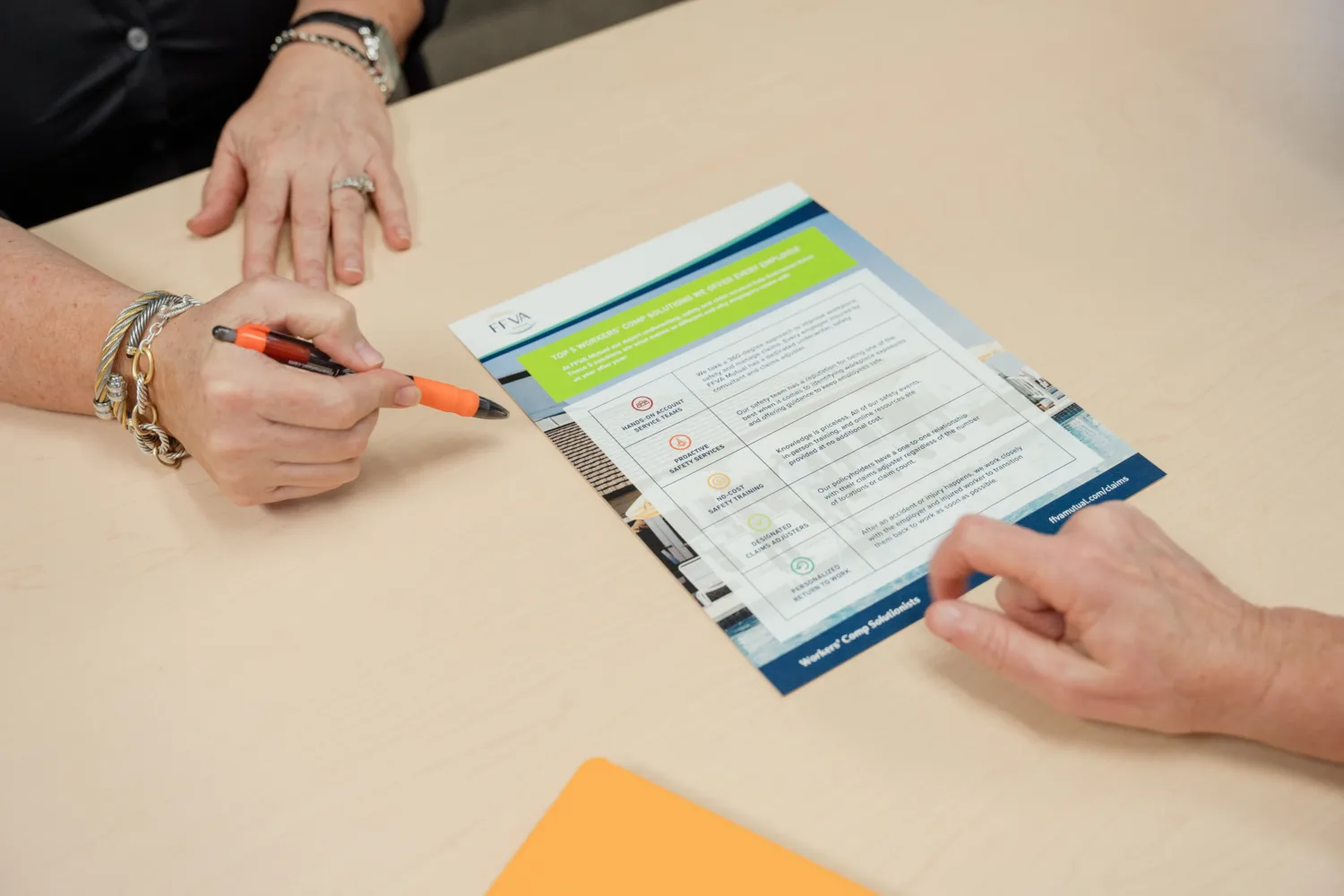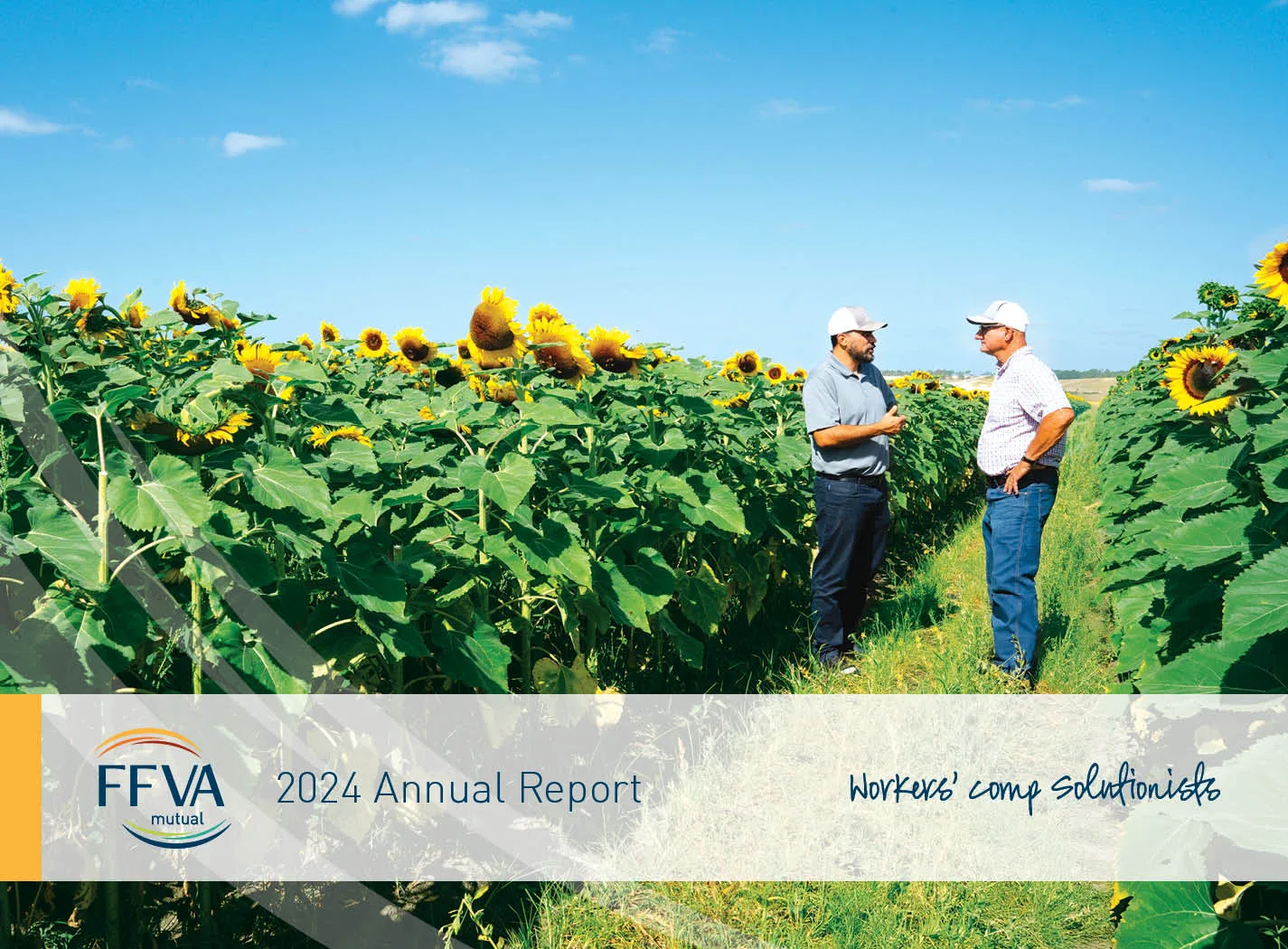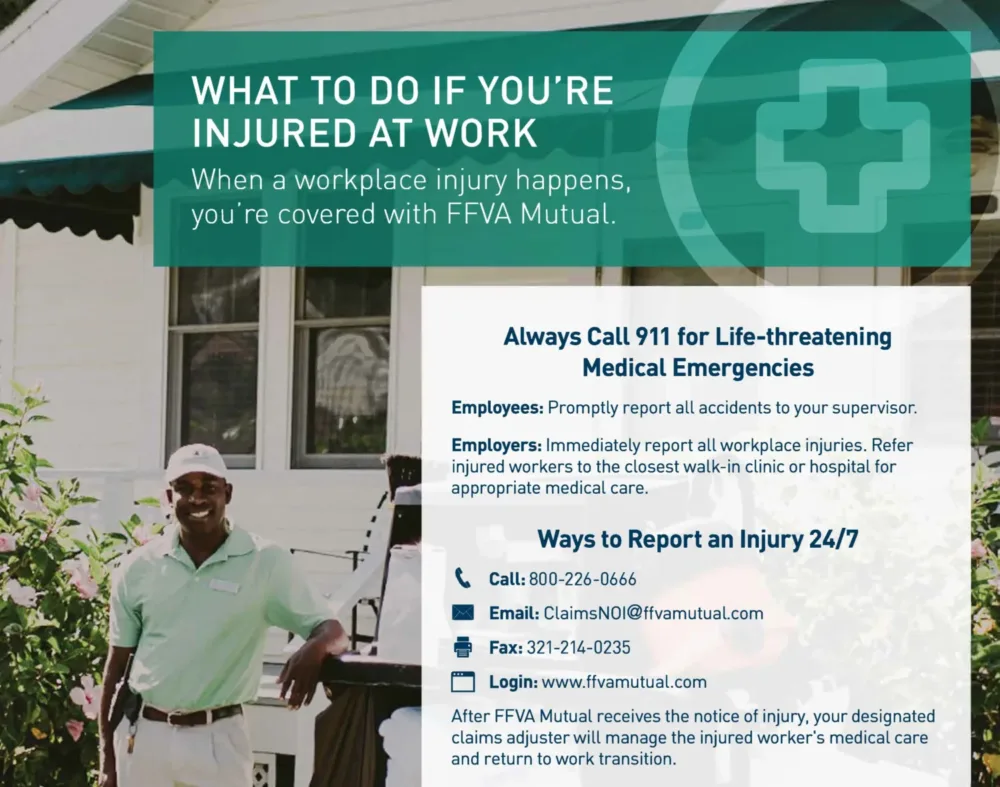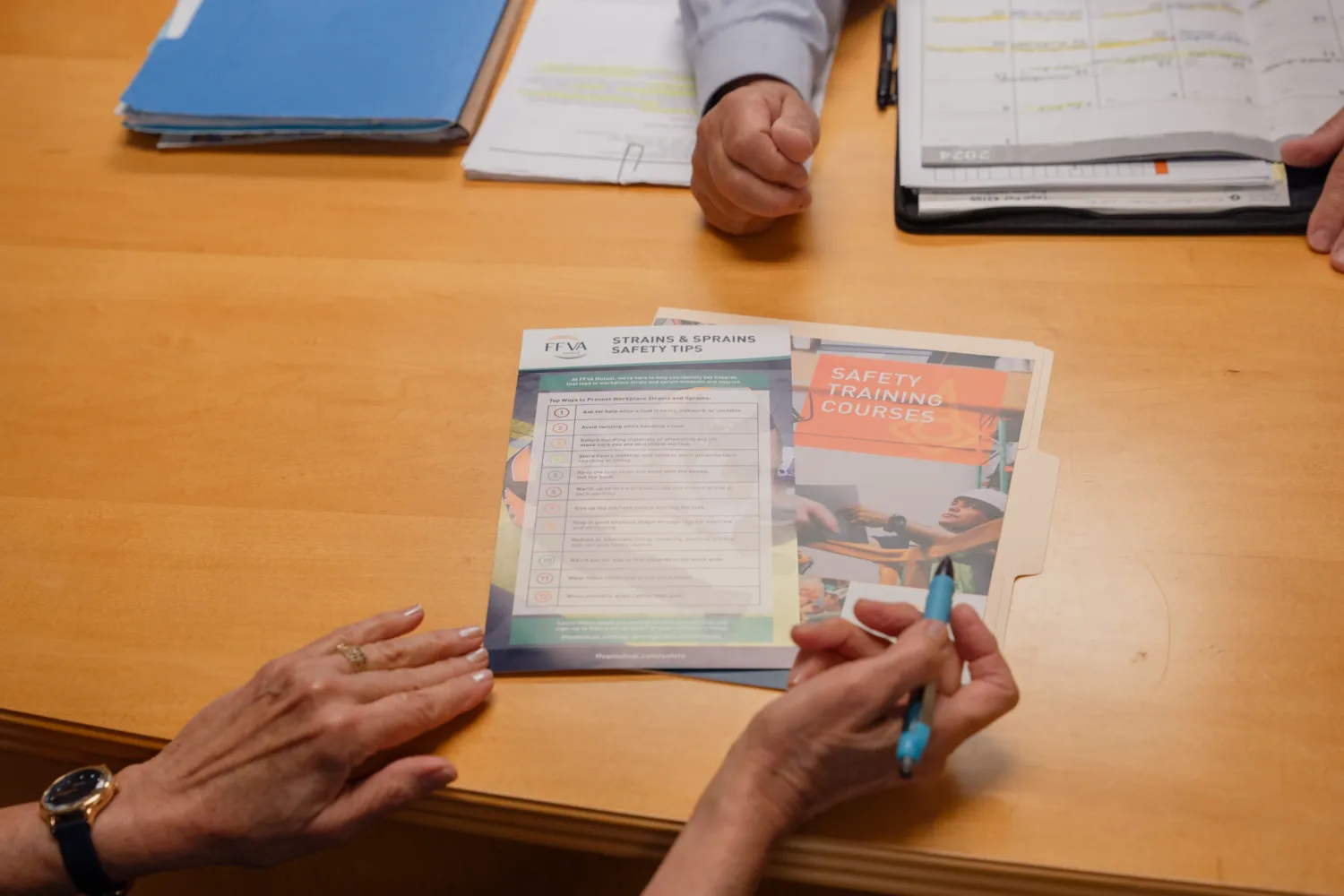All Year Round Safety Topics
It’s a new year, and that means it’s time to put workplace safety at the top of your yearly agenda. According to the Bureau of Labor Statistics, private companies reported a total of 2.6 million nonfatal injuries in 2023. That’s roughly 2.6 incidents for every 100 workers.
As we look forward to a new year, let’s walk through each month of the year and highlight a few safety tips you should consider implementing in your workplace. This keeps you safe all year round with knowledgeable safety topics.
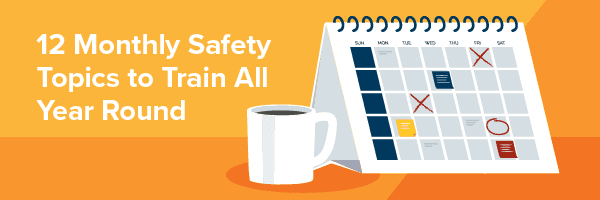
January
OSHA’s annual updates and other need-to-knows
Every January, OSHA rolls out its annual policy updates to help employers better create workplaces that are as safe for employees as possible. Even before OSHA publishes its latest policy updates, it’s important to understand what your recordkeeping obligations are under current OSHA guidelines.
Check out our webcast to get an overview of OSHA’s 2025 updates.
February
Heart health and CPR
In February, we celebrate Heart Health Month. Keeping the heart healthy doesn’t just help employees stay fit for the job, it also contributes to their overall health and well-being. In addition to several other lifestyle tips, employees should focus on eating a well-balanced diet, getting enough sleep and practicing stress reduction strategies.
February is also a great time to train employees on CPR in case a colleague suffers a heart condition and needs immediate assistance before first responders can arrive.
March
Hazard communication and personal protective equipment (PPE)
Workplace safety programs only work when employees know where the hazards are. Communicating the location of those safety hazards (through the use of signs, labels, symbols and other identifying markers) can help employers steer clear of hazards and stay safe.
There are other proactive steps employers can take before hazard signage is even needed. Personal protective equipment (PPE) (like gloves and masks) should be readily available and selected based on the workplace’s specific job functions and hazards.
April
Distracted driving
Distracted driving kills thousands of people every year, and the risk is even greater for those driving company cars. For employers, a driving-related accident can be seriously detrimental, leading to financial loss and reputational damage.
To help your employees practice safe driving habits while operating your company vehicles, encourage them to use the following techniques:
- Drive slowly and in a controlled manner.
- Avoid using any and all electronic devices, even for job-related reasons.
- Conduct routine maintenance of all company vehicles (at least once daily).
Practicing these behaviors can help employees stay out of harm’s way when they’re on the road. Learn more about driving safety in our Fleet Safety Webcast.
May
Ladder safety
Ladders are important for doing work at higher levels, but they can also put workers in dangerous situations. Some of the most common ladder safety hazards include placing ladders on slippery floors, ladders that are insecurely positioned and, of course, unsafe ladder usage by employees.
This May, help employees get the most out of these important workplace tools without putting themselves in danger. Encourage them to face the ladder each time they move up or down, avoid stacking ladders on top of other items, and ask employees to carry only light loads when using them.
For more helpful information on ladder safety, view our Ladder Safety Stand-Down page and watch this ladder safety webcast.
June
Fire safety
Summer’s here, and that means longer days, drier air and hotter temperatures. It also means there’s a greater risk of fire in and around the workplace. Some of the steps employers can take to protect from fires include:
- Ensuring all sprinkler heads are functional and secure.
- Familiarizing the local fire department with your workplace.
- Testing the fire alarm system annually and making sure it works properly.
Use our fire protection compliance list to make sure your workplace is ready to prevent fires, and watch our webcast for more fire safety tips.
July
Heat safety
July is the hottest month of the year, and that means many outdoor workers (like those in construction or landscaping) can be exposed to serious heat risk.
To mitigate the risk of injury in the sun, employees should be trained to understand what heat-related illness is and what it looks like so they can take the proper steps in case they (or a coworker) starts showing signs of heat stress.
It’s also important for employees to stay cool, drink plenty of water and apply sunscreen whenever possible. Check out our heat-related illness webcast for more information.
August
Safe and Sound Week
Every August, OSHA celebrates Safe and Sound Week, a weeklong promotion of health and safety in the workplace.
This year, we want to encourage employers to celebrate Safe and Sound Week by building an effective health and safety program. To get started, consider the essential elements required to put a good program in place:
- You need oversight and buy-in from senior leadership teams.
- Have systems in place for identifying and remediating safety hazards.
- Workers at all levels of the organization need to have channels to participate.
September
National Preparedness Month – Emergency preparedness
It’s important to be prepared for any workplace emergency. Emergencies are unexpected and can be disastrous if you haven’t put mitigation strategies in place in advance. As the kids go back to school and work activity picks up, it’s important to understand the basic elements of an emergency action plan (EAP) and how to put one in place.
Take the time to fully evaluate your entire workplace. Dig into the details to learn the possible emergencies your employees could face, the equipment that could pose risk, and substances that can threaten health and well-being. This information will form the basis of your EAP.
Register for our free webcast for more tips on how to plan for an emergency and view this national preparedness month post for additional tips and resources.
October
Electrical safety
The holidays are approaching, and that means lights, decorations and other electric items, both at home and in the workplace.
There are a number of safety tips employees should follow during this busy time of the year to cover exposed wires, prevent cords from tripping workers, and otherwise limit exposure to electrical hazards. Employers should take the time to conduct complete inspections of their workplaces to identify and mitigate all electrical hazards.
November
Holiday workplace safety tips
Employees are under a lot of pressure during the holiday season. From buying gifts, attending holiday parties and filling outsized production quotas at work, the holidays are a busy season for everyone.
Encourage employees to follow good health and wellness best practices to stay safe during the busyness. That includes getting enough sleep, avoiding overexertion and being extra mindful of distracted driving.
December
Workplace wellness
Many people spend the holidays eating, drinking, and spending evenings with friends and family. However, too much can take a serious toll on their physical (and mental) health. These workplace wellness tips help employees practice healthy habits both at work and at home during the holidays, so they can bring their best selves to the office every single day of the year.
Workplace wellness also incorporates Total Worker Health (TWH). Using this approach, companies support both the physical and mental well-being of their employees to address overall worker health, including mental health, environmental conditions and personal well-being.
Additional Seasonal Safety Resources
Whether it’s 5 below zero in January or the dog days of summer, our Solutionists at FFVA Mutual are always here to help! Learn more about our no cost safety training for our policyholders.
View our 12 Monthly Safety Topics Infographic for a quick listing of these topics.
Related blog posts
Winter Safety Tips for Your Workplace
Spring Safety Tips for the Workplace
Stay Cool with these Heat Stress Prevention Tips
Top 5 Safety Topics from 2024
